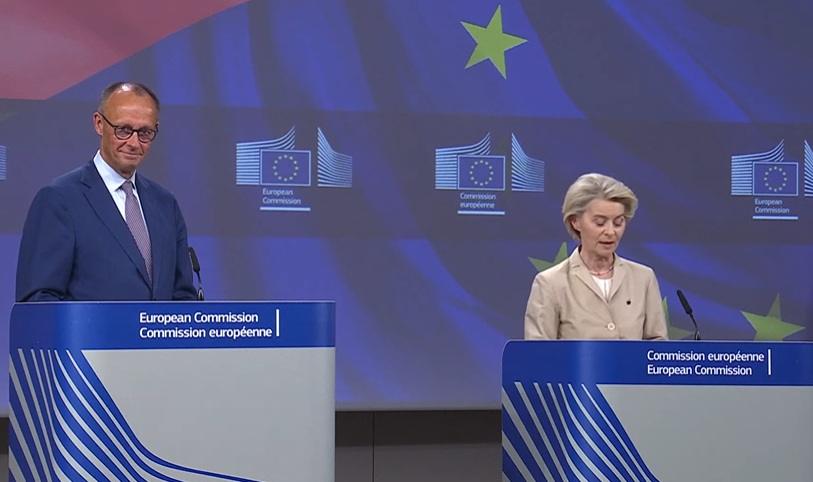German Chancellor Friedrich Merz called on Friday for the European Commission to eliminate the Corporate Sustainability Due Diligence Directive (CSDDD) requiring companies to address their negative impacts on human rights and the environment across their value chains, as part of a broad move to reduce compliance and regulatory burdens on companies.
The statement, made by Merz during a press conference alongside European Commission President Ursula von der Leyen in his first visit to Brussels as Chancellor, follows a coalition agreement to form a government in Germany in April that included eliminating Germany’s own human rights and environmental supply chain due diligence law, the Supply Chain Act (LkSG).
As part of the coalition agreement, though, the LkSG was to be replaced with the EU’s CSDDD law.
Merz said:
“We will revoke the national law in Germany, and I also expect the European Union to follow suit and really cancel this directive.”
The CSDDD sets out obligations for companies to identify, assess, prevent, mitigate, address and remedy impacts on people and planet – ranging from child labor and slavery to pollution and emissions, deforestation and damage to ecosystems – in their upstream supply chain and some downstream activities such as distribution and recycling. The legislation was adopted in May 2024, but only after a long process that ultimately required revisions in the legislation that significantly scaled back the number of companies covered by the law, and extended the timeline to its full implementation.
In February, the EU Commission proposed changes to the CSDDD as part of its omnibus process to simplify compliance obligations and reduce reporting requirements for companies. Proposed changes included requiring full due diligence only at the level of direct business partners, unless the company has plausible information of adverse impacts further down the value chain, and reducing the frequency of monitoring the effectiveness of due diligence from annual to every 5 years, in addition to setting limits on the information that can be requested from small companies in the value chain.
EU Lawmakers recently agreed to delay the implementation of the CSDDD by a year to 2028 as the omnibus process to update the law progresses.
While welcoming the postponement of the sustainability regulations as “a first step,” Merz called for the “complete repeal of some directives” as “the next logical step,” adding:
“I always like to mention the CSDDD in this context.”

